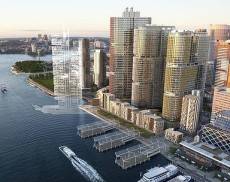June 18, 2014
Public sector procurement skills at heart of updated UK Civil Service plan
 The UK Civil Service has outlined the latest developments in the way it procures goods and services as part of its updated Civil Service Plan for 2014/15. These include a fresh take on the way the Crown Commercial Services (CCS) function operates with private sector firms. This is seen as an essential part of the new form of public sector procurement within the context of a Civil Service which ‘understands the private sector and can work confidently with them, whether purchasing goods and services through complex procurement or learning from them to enhance customer service’. The new approach to public sector procurement will be built on a range of new management skills and schemes to recruit new types of managers which will allow Government departments to share ideas and best practice and collaborate more effectively with suppliers and consultants. The document also emphasises the expansion of digital capabilities of the public sector services as a way of working with private forms and individuals.
The UK Civil Service has outlined the latest developments in the way it procures goods and services as part of its updated Civil Service Plan for 2014/15. These include a fresh take on the way the Crown Commercial Services (CCS) function operates with private sector firms. This is seen as an essential part of the new form of public sector procurement within the context of a Civil Service which ‘understands the private sector and can work confidently with them, whether purchasing goods and services through complex procurement or learning from them to enhance customer service’. The new approach to public sector procurement will be built on a range of new management skills and schemes to recruit new types of managers which will allow Government departments to share ideas and best practice and collaborate more effectively with suppliers and consultants. The document also emphasises the expansion of digital capabilities of the public sector services as a way of working with private forms and individuals.
























June 19, 2014
Virtually Uninspiring, Cautiously Aspirational – award winning offices for the VUCA world.
by Simon Heath • Architecture, Comment, Workplace design
More →